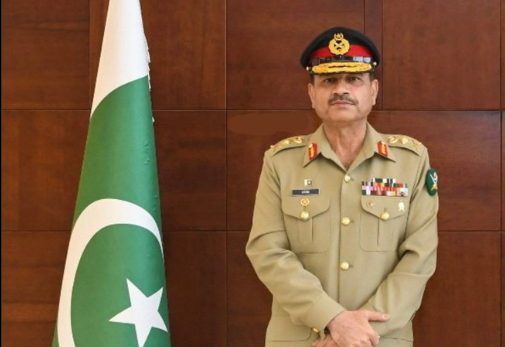Asim Munir’s Controversial Analogy Resurfaces
Pakistan’s Army chief, Field Marshal Asim Munir, has once again drawn attention with his striking analogy describing Pakistan as a “dumper truck full of stones” capable of crushing India, which he referred to as a “shining Mercedes.” The remarks came to light through Pakistan’s interior minister, Mohsin Naqvi, during a seminar in Lahore on Sunday.
According to Naqvi, Munir made the comments while addressing a Saudi Arabian delegation that visited Islamabad in May amid escalating hostilities with India. The analogy, which was reportedly repeated by Munir during a diaspora interaction in Florida earlier this month, has sparked heated debate across political and diplomatic circles in South Asia.
The Saudi Delegation’s Visit and Peace Push
Naqvi revealed that the Saudi delegation, led by deputy foreign minister Adel al-Jubeir, visited both India and Pakistan on May 8–9, just days after military tensions peaked. Their objective was to encourage dialogue and de-escalation. The Saudi foreign ministry later described the visit as part of Riyadh’s efforts to promote peace and resolve disputes diplomatically.
During the Islamabad meeting, Munir reportedly countered Saudi suggestions of reconciliation with India by asserting that, despite India’s economic and military advancements, Pakistan retained the ability to offset them in conflict. “India may look like a Mercedes, but we are the dumper truck full of stones,” Munir told the delegation, according to Naqvi. “Imagine what happens when the two collide.” The metaphor, he claimed, left the visiting diplomats silent.
Operation Sindoor and Four Days of Hostilities
Munir’s analogy was made against the backdrop of intense military exchanges. On May 7, India launched “Operation Sindoor,” targeting terrorist infrastructure in Pakistan with long-range weapons in retaliation for the April 22 Pahalgam terror attack that killed 26 civilians.
The confrontation triggered four days of heavy hostilities between the two nuclear-armed nations, which concluded on May 10 following an understanding to halt further military actions. Both countries claimed battlefield successes, with Pakistan alleging it had downed six Indian aircraft, while India confirmed striking multiple targets and reported shooting down five Pakistani combat jets and a large surveillance aircraft.
Echoes in Florida: Diaspora Interaction
Earlier this month, Asim Munir reportedly echoed similar rhetoric during a dinner with members of the Pakistani diaspora in Tampa, Florida. According to reports, Munir hinted that Pakistan could even employ nuclear weapons in the face of an existential threat, warning that such an action could affect “half the world.”
He also reportedly threatened that Pakistan might suspend the Indus Waters Treaty and use its missiles to strike Indian dams. Reiterating the Mercedes-dumper analogy, Munir told his audience that while India may appear sleek and modern, Pakistan possessed the raw power to cause irreversible damage in a collision.
Pakistan’s Claims of Military Superiority
During his Lahore seminar, interior minister Mohsin Naqvi went further by portraying Pakistan’s performance during the May clashes as a “military and diplomatic victory.” He asserted that Pakistani intelligence had advance knowledge of Indian war planning and claimed Islamabad had effectively neutralized Indian air operations.
India, however, has rejected such claims as exaggerated propaganda. Officials in New Delhi have maintained that Pakistan suffered heavy military setbacks, while India lost an unspecified number of aircraft during the confrontation. Analysts suggest that the truth lies between the two narratives, with both sides downplaying their losses.
Saudi Arabia’s Balancing Act in South Asia
Saudi Arabia has a history of mediating between India and Pakistan during heightened tensions, most notably after the 2019 Pulwama attack. However, Riyadh’s ties with India have deepened significantly over the past decade, particularly in energy, trade, and strategic cooperation, complicating its role as a neutral mediator.
By publicly recounting Munir’s comments, Naqvi highlighted Pakistan’s uncompromising stance toward India while also inadvertently showcasing the challenges faced by external actors attempting to broker peace in South Asia.
Global Implications and Regional Fallout
Munir’s remarks underscore the volatility of South Asia’s security environment, where nuclear-armed neighbors frequently clash over cross-border terrorism, Kashmir, and water-sharing disputes. Analysts warn that rhetoric like the “dumper truck versus Mercedes” analogy may boost domestic morale in Pakistan but risks fueling further mistrust and instability in the region.
For now, the episode reflects both Pakistan’s defiant posture and the diplomatic hurdles faced by regional powers such as Saudi Arabia in trying to de-escalate South Asia’s recurring crises.








